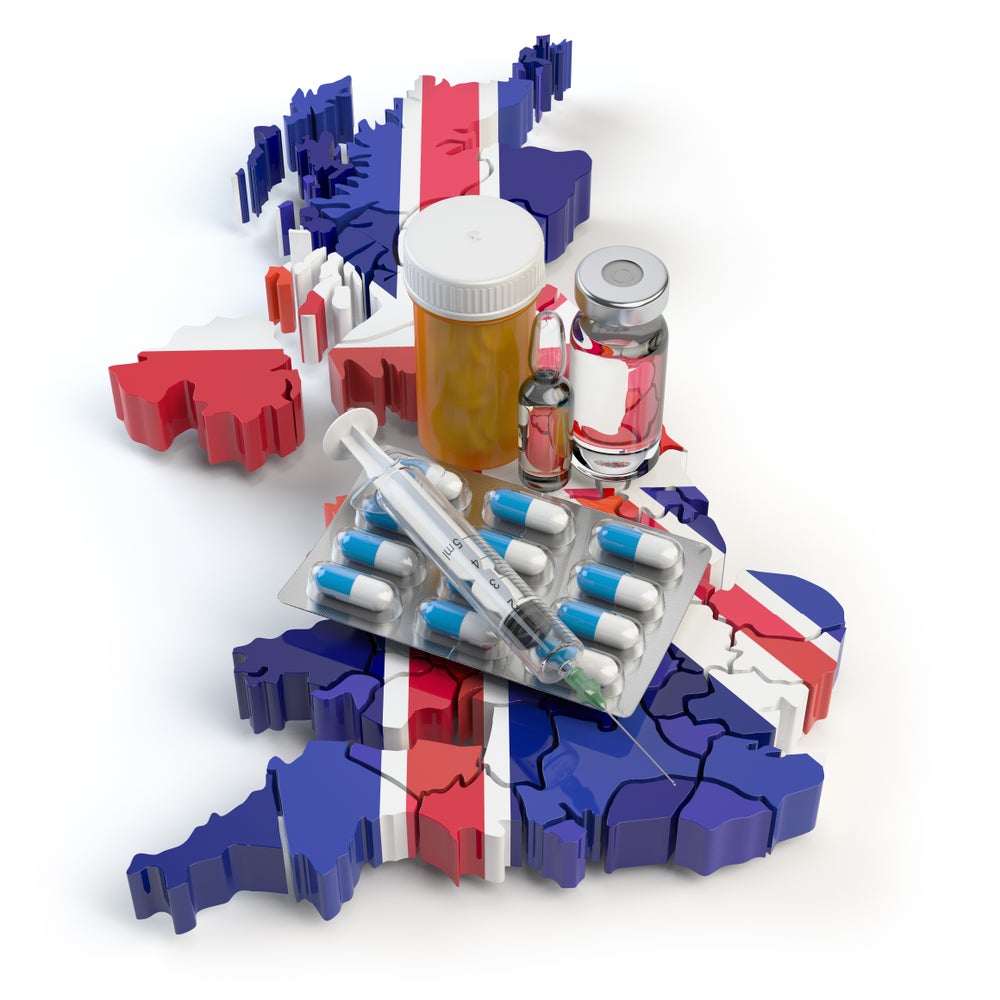
More than seven years since Brexit and almost four years since the arrival of Covid-19, the last year saw the UK government adopt a series of updates to pharmaceutical laws, governing the medication landscape for patients, pharmacists and manufacturers.
From emphasising patient safety and better access to clinical trials to fostering an innovative environment and managing medication costs, in 2023, the pharmaceutical industry saw the emergence of various new regulatory plans, updates and overhauls in the UK.

Discover B2B Marketing That Performs
Combine business intelligence and editorial excellence to reach engaged professionals across 36 leading media platforms.
With significant worries spanning supply chains, staff workloads, access to drugs and trials, and patient-centric care, various regulations are now in place or in discussion to address the post-Brexit and Covid-19 pharma space.
Pharmaceutical Technology takes a look at some of the biggest changes in the UK healthcare regulatory landscape from 2023.
MHRA unveils new corporate plan
In July, the UK Medicines and Healthcare products Regulatory Agency (MHRA) revealed a new corporate plan to create a quicker and more predictable legal landscape. Describing the new three-year plan as “visionary”, the MHRA has stated the strategy is designed to expand access to safe, effective and innovative medical products to ensure patient safety.
Over the proposed three-year timescale, the plan seeks to address several key strategic areas, spanning public trust, better access to safe and effective products and developing new strategic partnerships to further enhance the UK’s pharma sector.

US Tariffs are shifting - will you react or anticipate?
Don’t let policy changes catch you off guard. Stay proactive with real-time data and expert analysis.
By GlobalDataAdditionally, with the industry’s focus on using innovative technology, the new plan seeks to deliver more efficient and risk-appropriate regulatory pathways to aid innovation in areas including artificial intelligence (AI), cell therapy and vaccines.
Controlling costs of branded products
News of a statutory scheme emerged in March last year, with the new Voluntary Scheme for Branded Medicines Pricing, Access and Growth (VPAG) scheme being implemented this month. The scheme is designed to implement a drug tariff to manage the price of branded health service medicines.
The UK government had announced a proposed update to the payment percentage for the statutory scheme, as put forward in The Branded Health Service Medicines (Costs) Regulations 2018 regulation. The 2019 voluntary scheme for branded medicines pricing and access (VPAS) scheme, which expired in December 2023, was designed to control the pricing of branded medicines to the NHS, but was heavily criticised.
MHRA updates clinical trial regulation
In March, the MHRA announced its updated clinical trial regulation aimed at helping the UK’s clinical research sphere recover. Following a public consultation with the Healthcare Research Authority, the regulatory body revealed its overhaul of the current regulation would speed up research timelines at several stages of the trial process.
The new clinical trials legislation aims to ensure patients and their safety are the focus of all clinical trials as well as democratising clinical trial access to all.
The updated regulation also seeks to create a proportionate and flexible regulatory environment, and establish the UK as a destination for international trials.
Amendments to the NHS regulations
In May and September 2023, NHS England released guidance on The NHS (Pharmaceutical and Local Pharmaceutical Services) Regulations 2013. Ten years after its first publication, the latest updates establish the legal framework for commissioning pharmaceutical services in England, giving staff and service providers more protection and clarity.
The legislative updates include a new provision to enable staff to change their core hours to ensure they can take rest breaks, allow temporary coordinated closures through local hours plans, limit core hours of work for contractors who entered the pharmaceutical industry and list under the 100-hour exemption, and put in place business continuity measures if the pharmacy is unable to open.
The 100-hour exemption limit refers to the amended law enabling pharmacy contractors to apply to the relevant integrative care board (ICB) to remove the inclusion on the pharmaceutical list. The list specifies that the applicant agreed to provide pharmaceutical services for at least 100 hours per week, as stipulated in regulation 13 (1) (b).
Changes in medical device registration
The MHRA, responsible for regulating medical devices in the UK, published a guidance document in July on the medical device market. It set out information on how manufacturers could get medical devices certified, recommendations surrounding conformity marking on medical devices, and how to register medical devices with the MHRA.
Medical device innovators and manufacturers now have a new route to market and product marketing of the UKCA marking. All medical devices, including in vitro diagnostic medical devices (IVDs), custom-made devices and systems or procedure packs, must be registered with the MHRA before they enter the UK marketplace, following the updates.
A medical device manufacturer based outside the UK, now needs to appoint a single UK Responsible Person for all of their devices, when wishing to enter the UK market. A valid CE mark is required to place a medical device on the European Union (EU) market, with the UK government announcing measures to enable CE-marked medical devices on the UK market.




